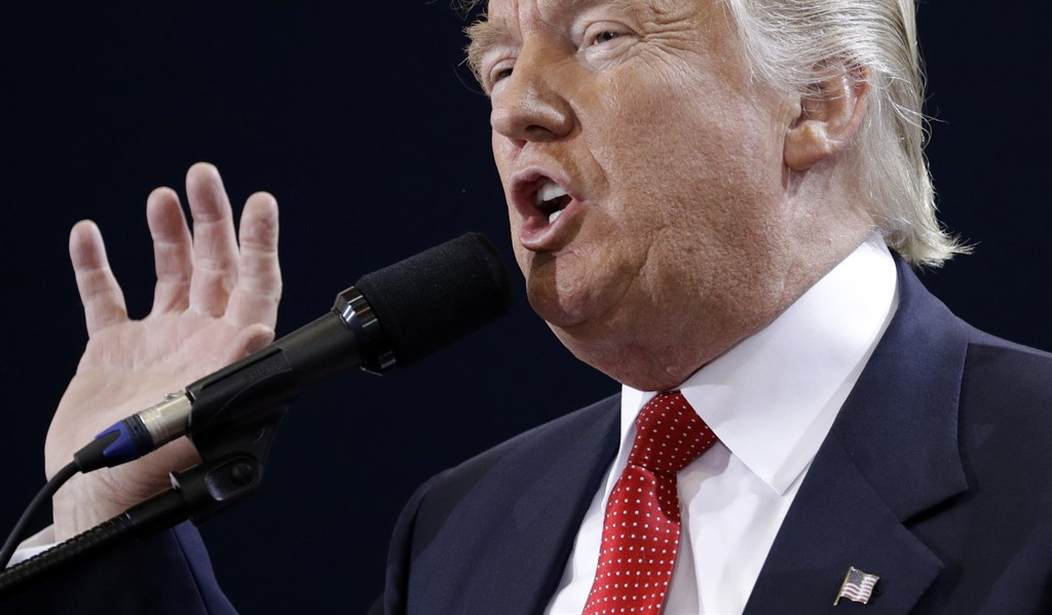In finally rolling out his education plan September 8, Donald Trump once again proved to be the most unorthodox of presidential candidates. While his style frequently flummoxes political foes and friends alike, this time he appears to have succeeded in putting school choice on the campaign’s center stage.
The heart of his big plan is to convert $20 billion of the existing $64 billion in earmarked federal K–12 funds to a block grant program with states heavily encouraged then to let that money follow children from low-income homes to the private or public school of their choice.
Evidently, states would be free to use these unencumbered funds in other ways. However, Trump said, “Distribution of this grant will favor states that have private school choice and charter [school] laws, encouraging them to participate.” In other words, if a President Trump dealt from his strongman persona, nonparticipating states might face repercussions.
Trump went further and vowed he would make it a “national goal” for states to pitch in another $110 billion from their own education budgets so that $12,000 in “school choice funds” would be available “to every K–12 student who today lives in poverty.” Presumably, that would be an annual, renewable subsidy, but he didn’t specify.
“If we can put a man on the moon, dig out the Panama Canal, and win two World Wars, then I have no doubt that we, as a nation, can provide school choice to every disadvantaged child in America,” declared Trump, perhaps marking his first-ever use of the policy-wonk word “disadvantaged.”
Recommended
Undoubtedly, Trump’s education plan leaves many unanswered questions and raises legitimate concerns, but his flair for the dramatic yielded major media coverage. After his camp had teased the announcement for a week, Trump spent the first 15 minutes of his 40-minute education speech at a predominantly black Cleveland charter school ripping Hillary Clinton on national security. He then went on to pledge that as president he would be the “biggest cheerleader” ever for school choice.
If nothing else, Trump’s theatrics cast the spotlight on parental choice as a serious election issue more than any recent presidential campaign has done.
Four years ago, at the first Obama-Romney debate, GOP candidate Mitt Romney said he would like federal funds from the IDEA and Title I programs for disabled and low-income pupils, respectively, to follow the kids to schools their families choose. But then he garbled his explanation: “So all federal funds, instead of going to the state or to the school district, I’d have go, if you will, follow the child and let the parent and the child decide where to send their student.”
Even worse, Romney put all that in the context of partial support for Obama’s Race to the Top initiative, which bribed states to adopt the Common Core national standards, a one-size-fits-all killer of choice.
Eight years ago, in the third Obama-McCain debate, GOP contender John McCain made charter schools his entire focus, citing the success of those privately managed but publicly overseen institutions in cities such as New Orleans and New York. McCain did not mention private school choice at all.
Not until Trump’s son, Donald Jr., delivered a full-throated endorsement of school choice at the GOP National Convention in July had the Trump campaign said much at all about education, much less choice. Education did not even rate a nod on the campaign website.
Suddenly, school choice seems to have caught fire, as Trump and his advisers appear to realize this issue’s appeal to Hispanic, African-American, and young voters—three groups the 2016 Republican nominee has struggled to connect with. Indeed, an American Federation for Children poll released in January showed support for school choice at 76 percent of black and Latino voters and 75 percent of Millennials.
In a follow-up speech delivered on September 9 at the Family Research Council’s Values Voter Summit in Washington, DC, Trump’s rhetorical flourishes made it sound at times as though his block-grant school aid would exclusively benefit minority children, a point of emphasis that might not be received well with his lower-income white supporters. While surely any such program would be open to needy children on a non-discriminatory basis, the extent to which federal government might impose agendas on participating localities and schools is a concern even for some supporters of educational choice.
For now, the name of the game is politics, not regulatory reality. In that regard, Trump’s plan draws attention to a significant split in Democratic ranks between teacher unions, which adamantly oppose parental choice, and black and Hispanic parents, who see choice as a way for their children to escape bad schools (led by the aforementioned teachers unions) and gain entrance to good ones. By siding wholly with union dogma so far this election cycle, Clinton has given Donald Trump this opening.

























Join the conversation as a VIP Member